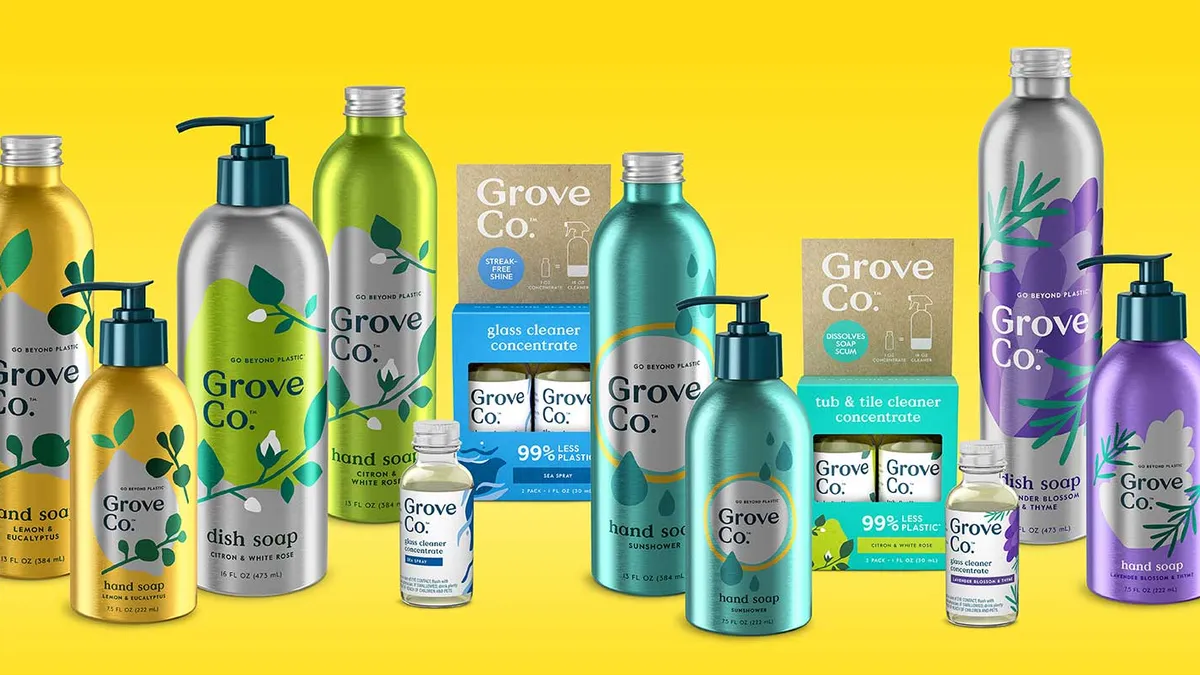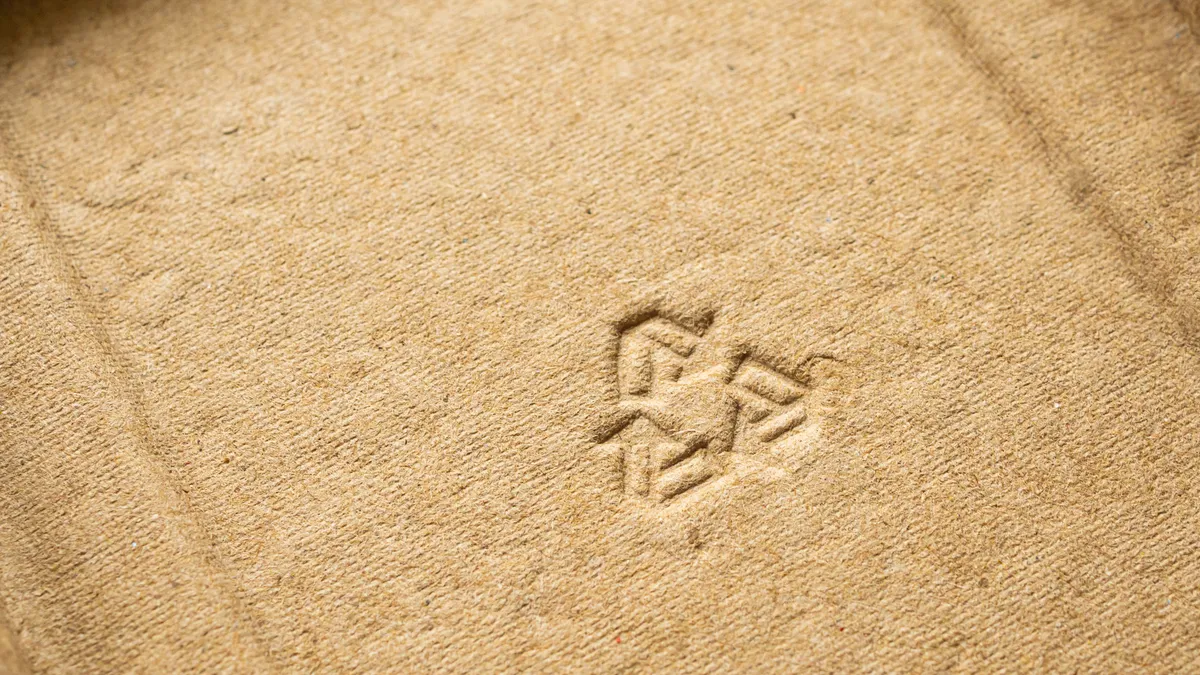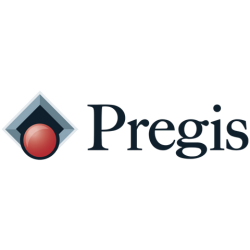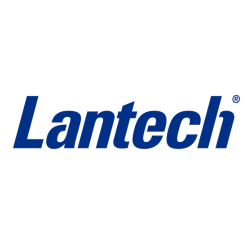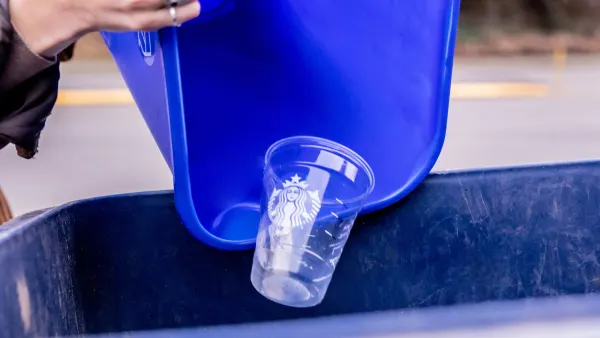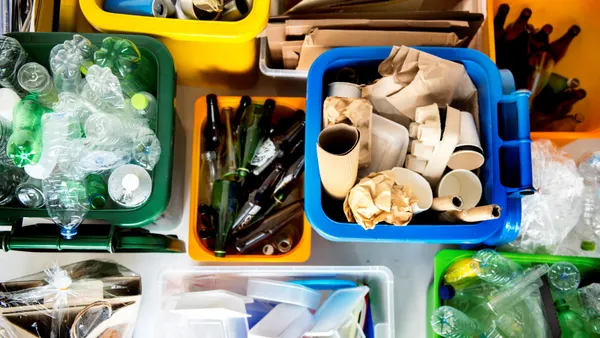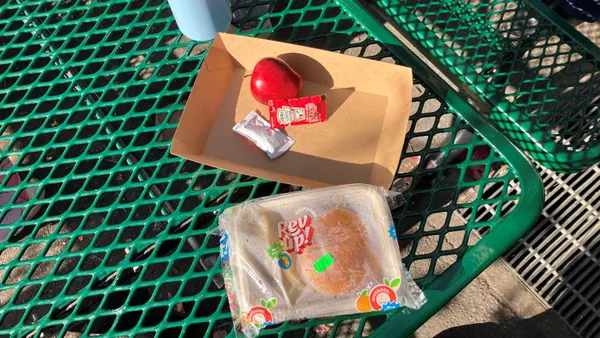Dive Brief:
- Grove Collaborative, an online marketplace that creates and curates “planet-first home essentials” like cleaning and personal care products from more than 240 brands, announced Monday it will not meet its plastic-free by 2025 commitment, a goal it set in 2020.
- Grove is not renewing the plastic-free commitment. The company declared its new target is to avoid 15 million total pounds of plastic by 2030, retroactive to 2020. Since then, 7.8 million pounds have been avoided — by Grove’s calculations of orders with products containing less single-use plastic — putting the company more than halfway to the goal.
- Eighteen months out from the end of 2025, Grove reports that one-third of the more than 3,000 products sold on its site are considered more than 95% plastic-free. The rate of plastic-free products is 63% among Grove’s own brand, which prioritizes aluminum as well as glass and paper over plastic.
Dive Insight:
With 2025 on the horizon, some companies that set ambitious virgin plastic reduction goals are beginning to release updates on whether reaching those targets still appears possible. In some cases, they’re preemptively updating those goals or changing the scope and deadline years. Unilever, PepsiCo, Colgate-Palmolive and the U.S. Plastics Pact are among the organizations that have addressed these concerns in recent months.
Despite being “aggressive” in its efforts, “we learned in our pursuit that we cannot do this alone because achieving this incredible goal requires massive transformation in the CPG ecosystem,” including in packaging design and supplier innovation, said Alexandra Bede, Grove’s director of sustainability, in an emailed statement.
“We’ve had a lot of learnings along the way. The most important was learning that becoming plastic free isn’t about when, but how, and what actions would be needed for all of us to get us there as quickly as possible,” Bede wrote.
Examples of products where it’s been hard to eliminate plastic, Bede said, include pumps for spray bottles and dispensers (plastic-free versions exist but can be quite expensive); cleaning product containers (formulas interact with aluminum, which necessitates a small plastic liner); and laundry and dishwasher pods (many of which are enclosed in polyvinyl alcohol, or PVA). “For consumer behavior to change, sustainable products need to be efficacious and affordable,” Bede said.
“The biggest barriers to us not hitting our 2025 goal was that we simply need more brands, companies, and industries to prioritize plastic reduction for plastic-free to be feasible,” Bede said. “Part of this lack of participation is due to there being little corporate incentive to move away from plastic ... without government or regulatory intervention in the form of legislation, there are no incentives for companies to be more sustainable and virgin plastic will always be the cheapest available material.”
Therefore, Grove is shifting its aims. The company says its new commitment is intended to reduce the impact of currently unavoidable plastics. It’s “centered around turning off the plastic tap by helping customers avoid purchasing plastic in the first place while also reducing the impact of the plastic that still makes its way through the spigot, recovering that waste through our plastic neutrality commitment,” including through its work with rePurpose Global.
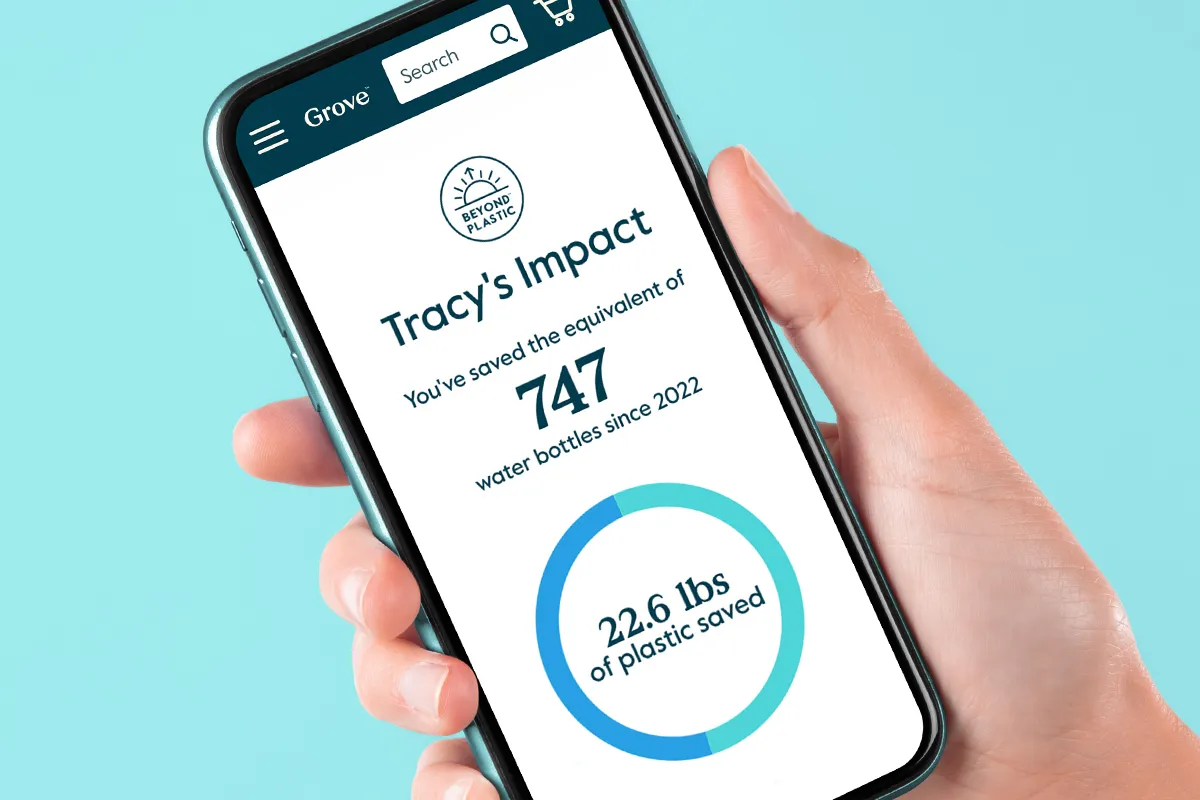
“We see plastic neutrality as a meaningful and realistic way to mitigate our plastic footprint as we continue to in tandem reduce single-use plastic in our product assortment,” Bede wrote. “We do not see it as a license to pollute and continue selling single-use plastic without meaningful effort to continue reducing our plastic footprint.”
Grove found that going plastic-free is “incredibly challenging as a business, but also for our customers,” Bede wrote. The company is rolling out an impact tracker tool that shows customers their “personalized plastic savings,” Grove also announced Monday.


